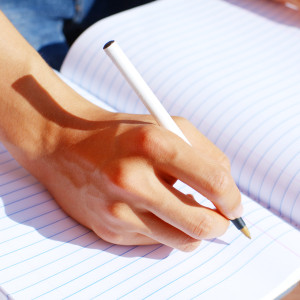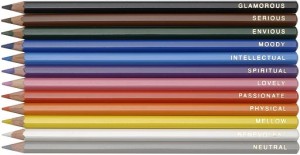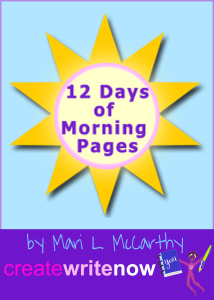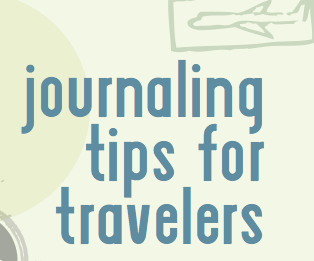a guest post, by Lily Wilson
 A dear friend proposed an experiment: maintain a journal for one month and notice what changes in my life. I remember rolling my eyes. I reminded her why I had chosen to be a freelance writer: To be my own boss, to write on my own schedule, and besides who needs journaling when you write everyday anyway? But she insisted that journal-writing is something wholly different. In the end, I was intrigued to find out if I could do this, and whether it would affect my life in a positive way.
A dear friend proposed an experiment: maintain a journal for one month and notice what changes in my life. I remember rolling my eyes. I reminded her why I had chosen to be a freelance writer: To be my own boss, to write on my own schedule, and besides who needs journaling when you write everyday anyway? But she insisted that journal-writing is something wholly different. In the end, I was intrigued to find out if I could do this, and whether it would affect my life in a positive way.
Where I Ended Up
Heal Thyself
I was going through a rough patch when I started this experiment and I suspect that was one of the reasons my friend wanted me to do this. Keeping a journal did not make my problems go away. But it did make me see my problems more clearly. I’ll admit, I didn’t write in the journal every day. Work and other issues kept me from that, however, going back to reading the previous entries became a habit. Reading what I’d written at that particular moment helped me digest it later. I realized what was troubling me and that helped me heal.
Know Better
When I began, I skipped details and important stuff, opting to write about the mundane and getting the chore done as quickly as I could. When I kept writing, however, these details started ending in the journal. Little things that bothered me and ruined my mood without warning became part of the entry, as I described my day. It helped me to get to know myself and I could better avoid the stuff that wasn’t good for me.
Bird’s Eye View
While writing what you feel in that particular moment, it also increases your chances of coming back to revisit that feeling. You take out time from a very busy life to slow down and just observe what you wrote. This makes you realize that other people were also involved in the situation, and that they may have a perspective different than yours. Pausing to consider someone else’s point of view is a lesson in patience and you end up broadening your vision. Next time you could very well decide to pause to consider how your actions are affecting others before you act on them.
Worth Living
If I ever felt that my life was not interesting enough, journaling has certainly changed my mind. When I read about my past, about things that I had forgotten about, it reminds me that I have been living a very interesting life. It could only get better, as I continue to move on, right? If you are down on yourself often, keeping a journal will help you realize things you once knew but have forgotten. I already had depth in my life; journaling just helped me find it again!
From Patient to Patience!
For as long as I can remember, I have been a hothead. Once my temper flares, there is nothing that can turn the dial back down. Reading about my reaction to a situation that had angered me in the past aids me to reflect upon it. By removing myself from the equation, I can compare what I should have done with what I did. A lifetime of being angry does not go away with one journal entry; I still get angry, but now it is manageable. Like I said, a journal is not a magic wand that you can wave around but it does help you see the way.
How You Can Start
I know maintaining a journal seems like a daunting task but if I can do it, you can too. Still undecided? Here are some ways that will help you get started:
- Start with a playlist of songs. As you listen to them one by one, simply record how each made you feel or what they reminded you of.
- Start by drawing self-portraits. Take pictures, draw, color, create as you go along.
- Start with a list of your favorite quotes. Add to them daily or weekly. Include how they you make feel and why they are your favorites.
- Start with the obvious. Simply stating the highlights of each day, where you live, what you like, can get you on the bandwagon.
Once you get into the habit of writing, you can move to deeper waters.
About the Author
Lily Wilson is a 34 year-old homestay freelance academic writer. Lily runs her personal blog AnAwfulLotofWriting and works as a contributing academic writer at ThePensters.com.










